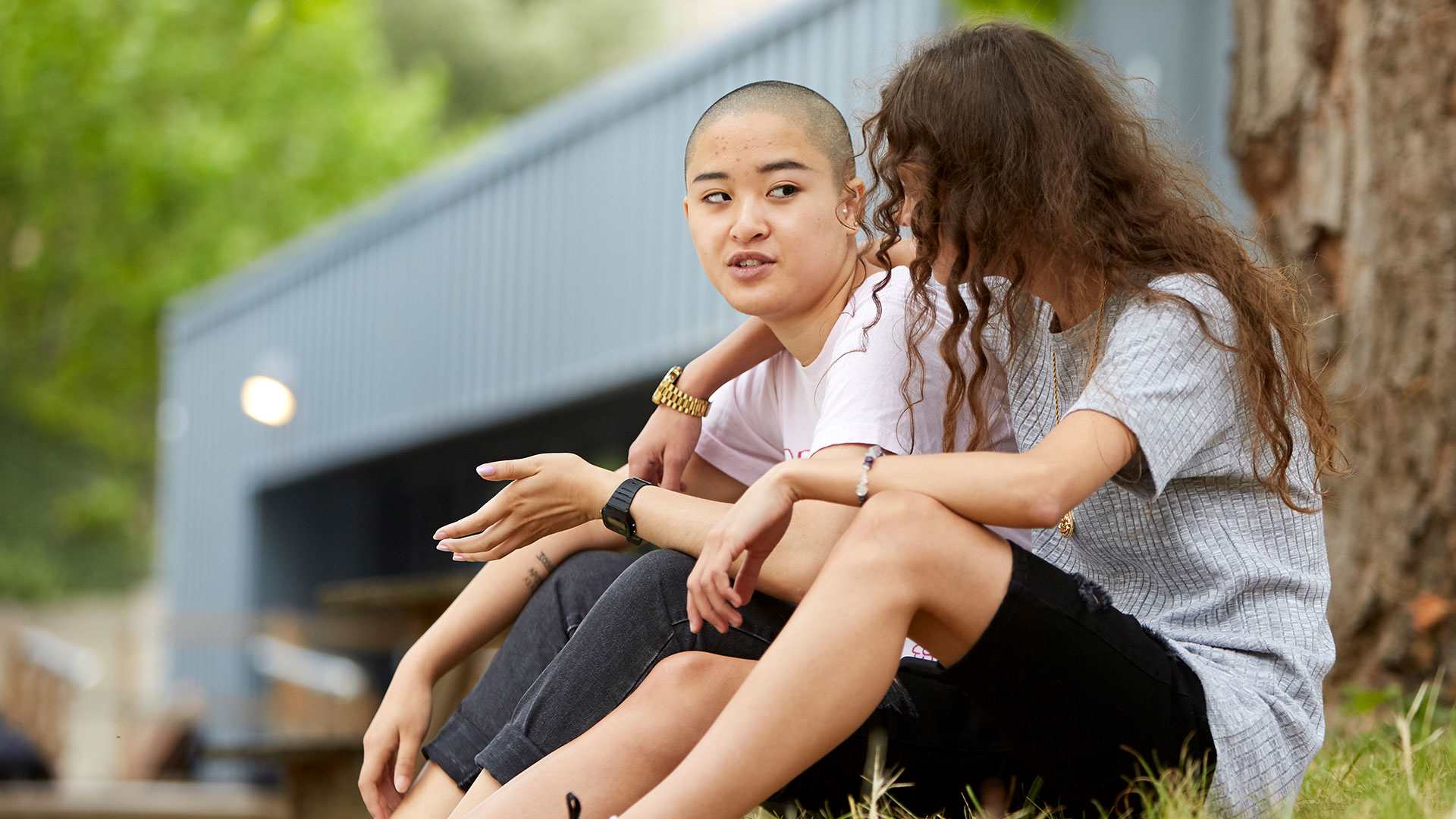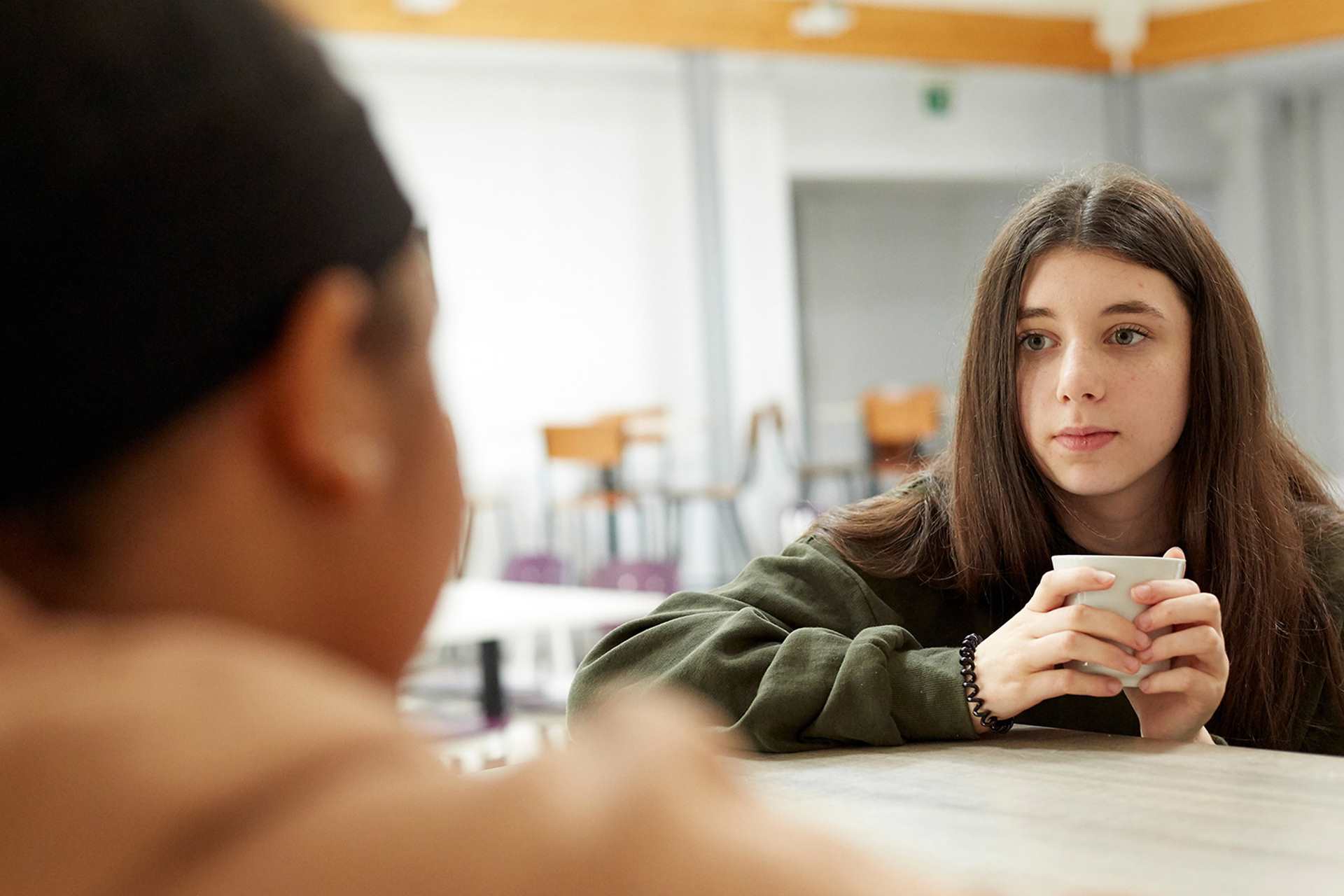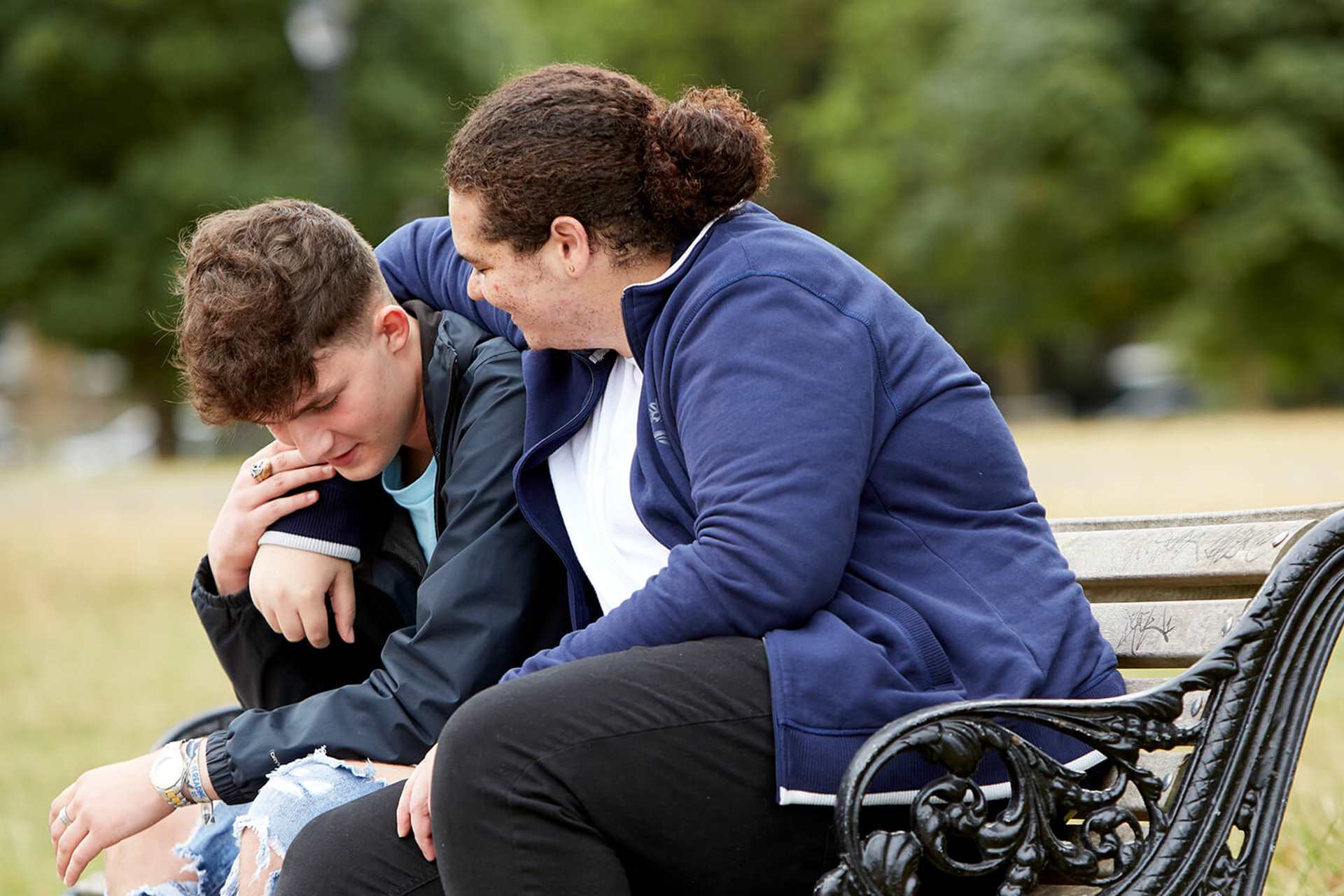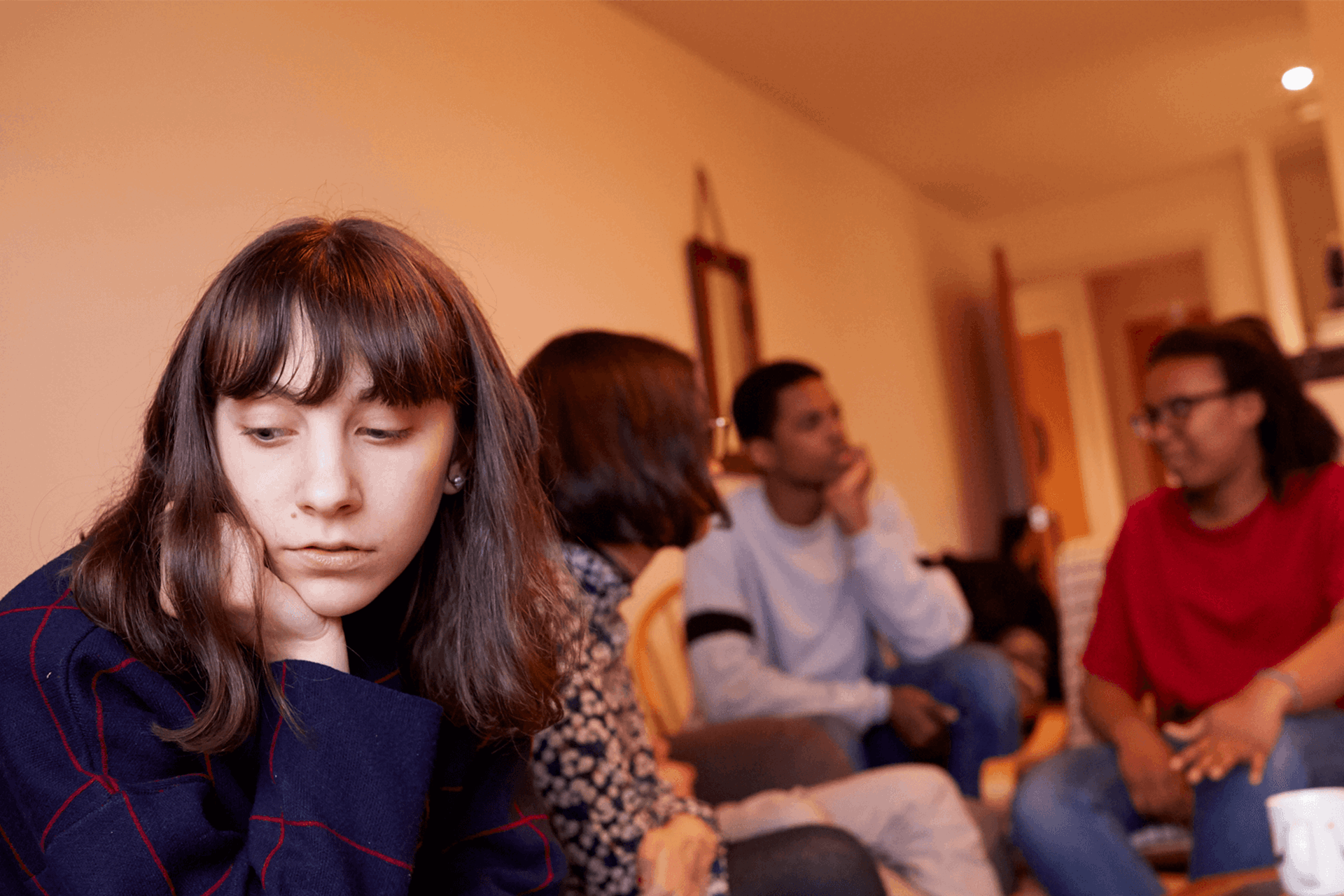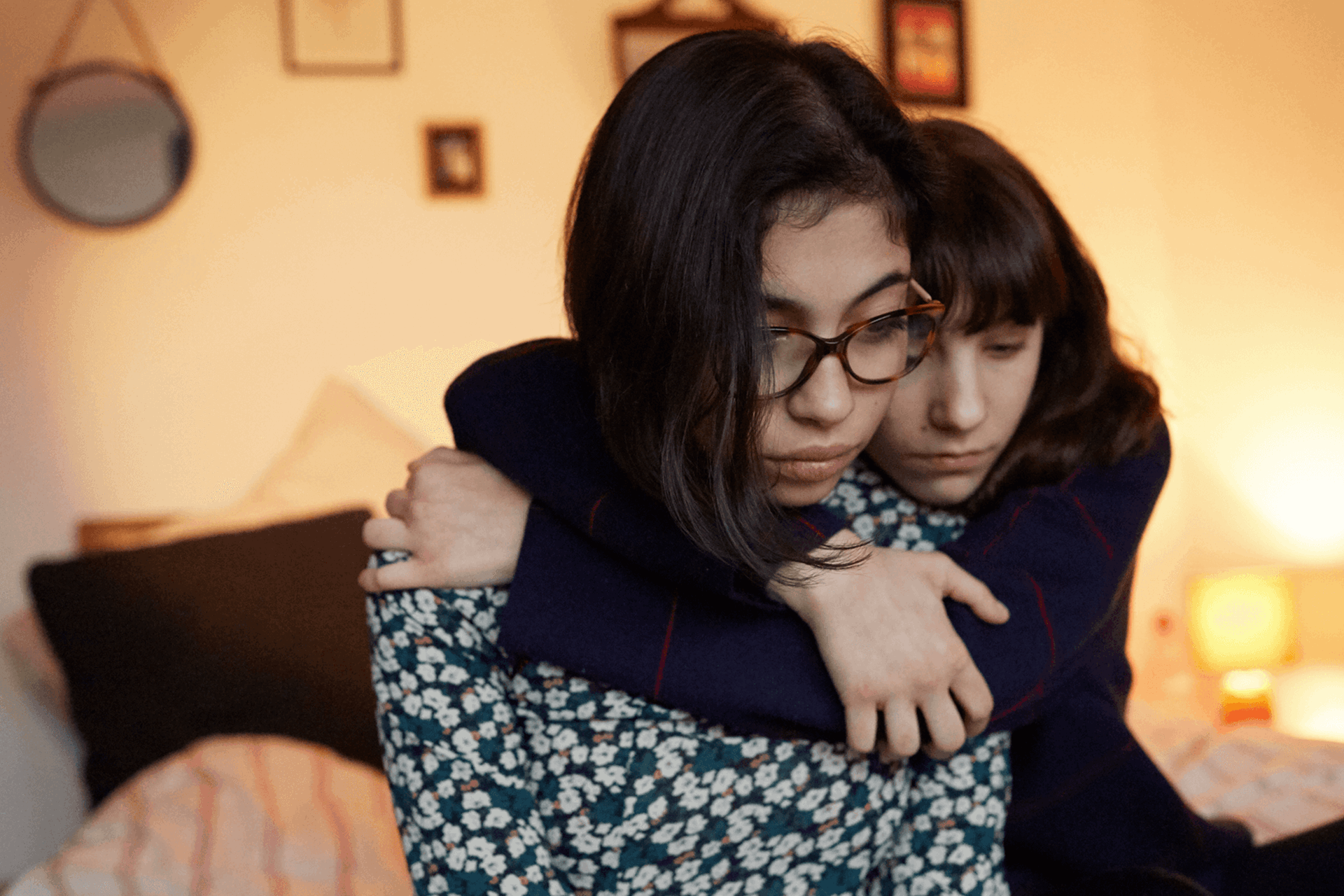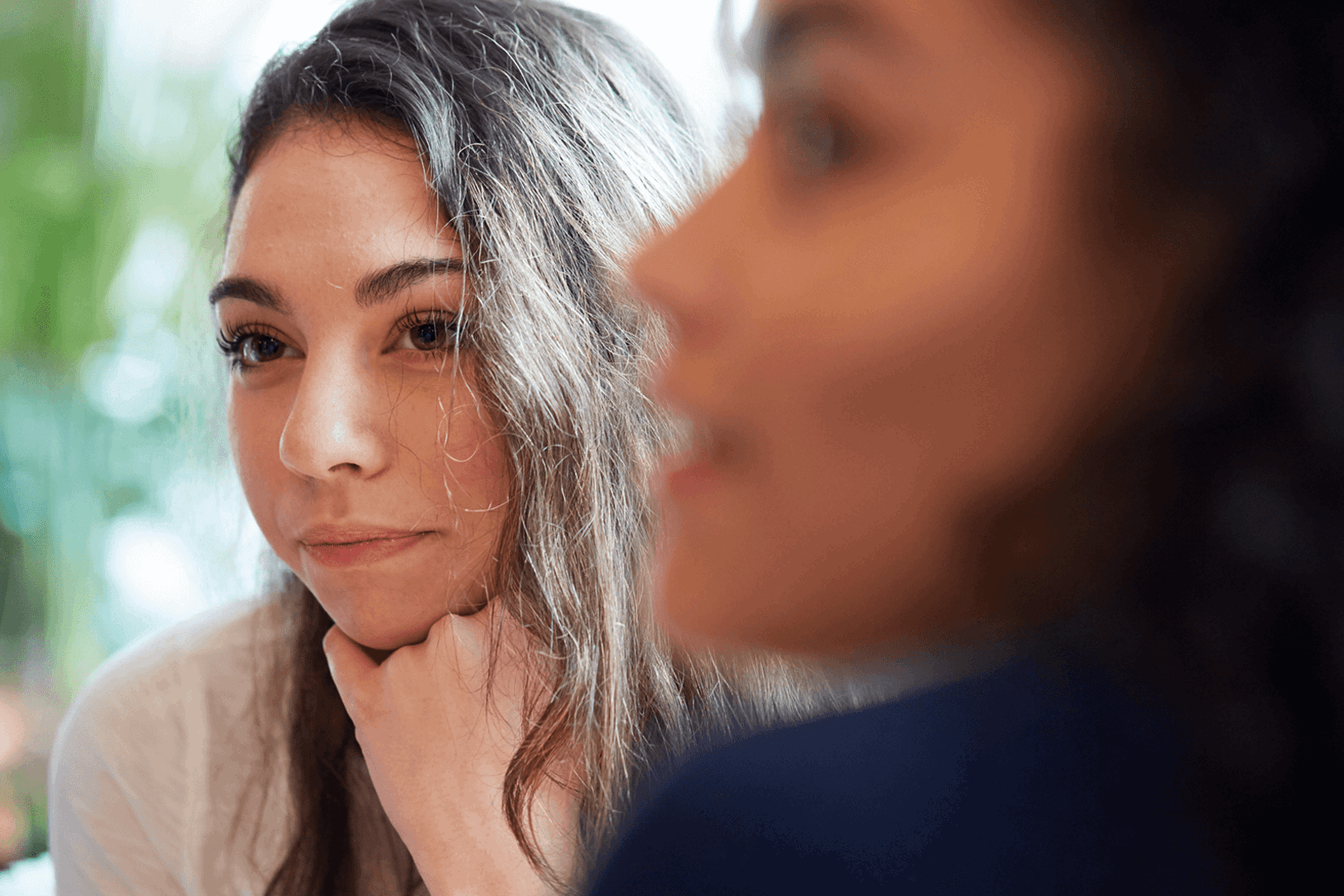Topics mentioned: anxiety, loneliness
About: Sophie explains some of the ways anxiety and stress can affect our bodies that we don't normally talk about, and why we need to normalise them.
It's no secret that the mind can have an effect on our bodies. When we get anxious we often sweat or blush; we might feel our body heat rise uncomfortably and our hearts hammer in our chests; and sometimes our voices might crack, squeak, or sound quieter than intended. We might also find that our eyes start to water, we start to tremble or shake, and we feel light-headed, to name just a few.
But there are some physical symptoms that aren't often discussed quite so honestly. For example, anxiety or stress can also affect our digestive systems and toilet habits. This can mean constipation, diarrhoea, or the nervous wee that we have to have ten times when we’re anxious. I once was so anxious about a job, I struggled to eat properly because it felt like my throat was restricting or closing up. It's a symptom I experienced a lot throughout my childhood - my anxiety would often make me gag on food when I tried to physically swallow – but it’s one I rarely hear mentioned.
These physical symptoms can be so frustrating and a huge discomfort. And when we don’t know how common they are, it can leave us feeling all alone.
I once was so anxious about a job, I struggled to eat properly because it felt like my throat was restricting or closing up.
I discussed common symptoms l was experiencing, like the blushing and sweating, with my therapist. I would often wear clothes of a neutral colour just in case I got nervous and started to sweat. My therapist suggested social "experiments" to help. These included slowly gaining a little more confidence in public, as I suffer from social anxiety and doing anything in public feels nerve-wracking. I was specifically nervous about being judged, and my social "experiments" included small things like sitting in the middle of a restaurant instead of hiding in a corner, and slowly wearing lighter-coloured clothing that would show up any sweat patches.
The idea was to make a note of how anxious I was on a scale of one to ten before the experiment, to try and complete my task, and then to go back afterwards and write on the scale how anxious I was during and after the test. The results usually indicated that my anxiety was high before, a little better during and lower after the completion of the experiment. The more I did these little tasks, the more I realised that my anxiety at the beginning was often triggered by what I worried would happen – but these worried never came true.
I would often wear clothes of a neutral colour just in case I got nervous and started to sweat.
I am now much more comfortable wearing what I like in public without the feeling of being judged. The truth is everyone is so busy and wrapped up in their own lives that what you are wearing or any physical signs of anxiety and distress you are displaying are far more noticeable to you than to anyone else.
The physical effects that anxiety has on our bodies are very much as real as the effects it has on the way we feel and the thoughts we have. It is inevitable that these connections all come hand-in-hand and it can be unpleasant when we experience them. But discussing these physical symptoms more openly might help us tackle and normalise them when it comes to mental illness. Blushing, sweating, shaking, constipation, diarrhoea, the constant need to pee and the struggle to eat are all part of the package that we didn't sign up for – and that’s okay.
Where to get help
-
No Panic
Supports people struggling with panic attacks, phobias, obsessive compulsive disorder (OCD) and other anxiety-related issues - and provides support and information for their carers.
Call 01952 680835 for a recorded breathing exercise to help you through a panic attack (available 24/7).
- Opening times:
- 10am - 10pm, 365 days a year
-
Childline
If you’re under 19 you can confidentially call, chat online or email about any problem big or small.
Sign up for a free Childline locker (real name or email address not needed) to use their free 1-2-1 counsellor chat and email support service.
Can provide a BSL interpreter if you are deaf or hearing-impaired.
Hosts online message boards where you can share your experiences, have fun and get support from other young people in similar situations.
- Opening times:
- 24/7
